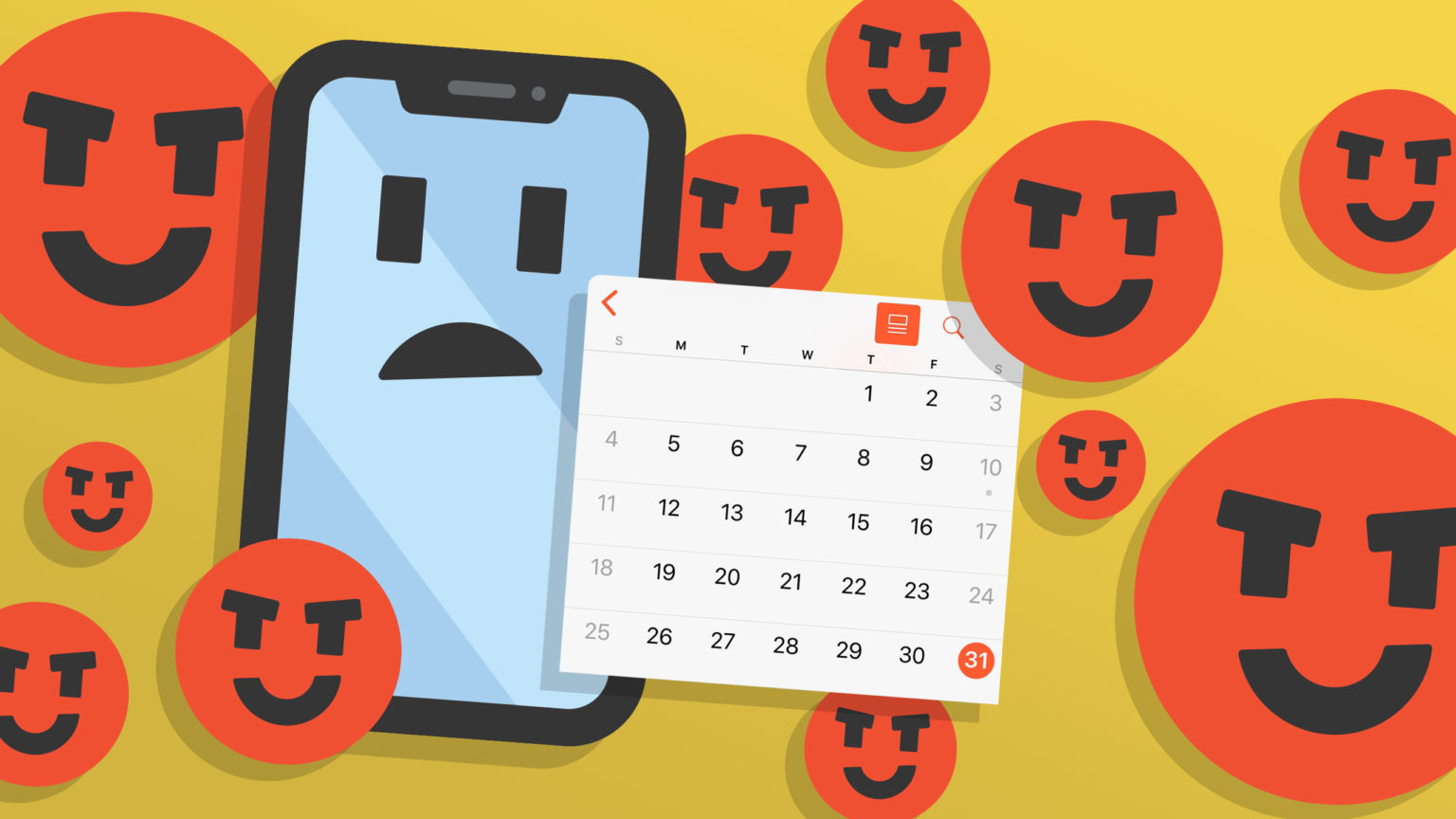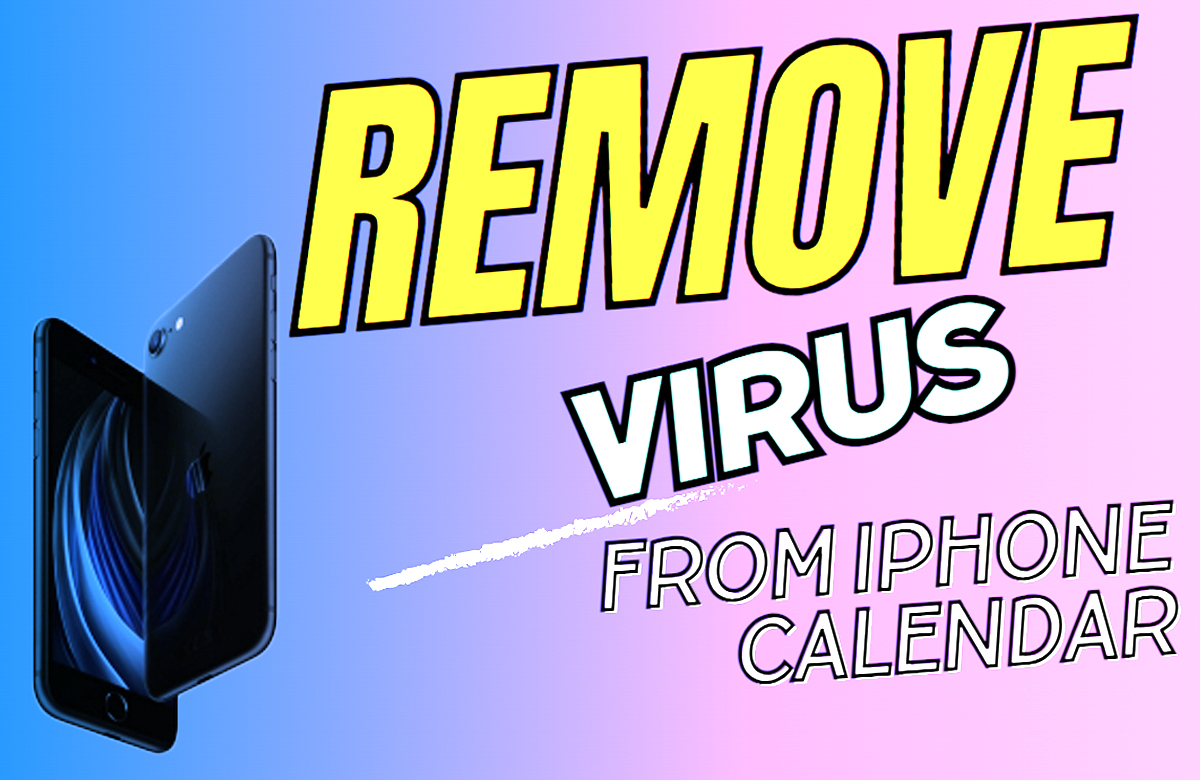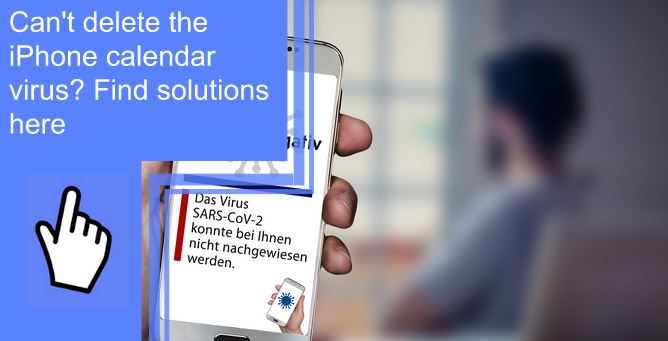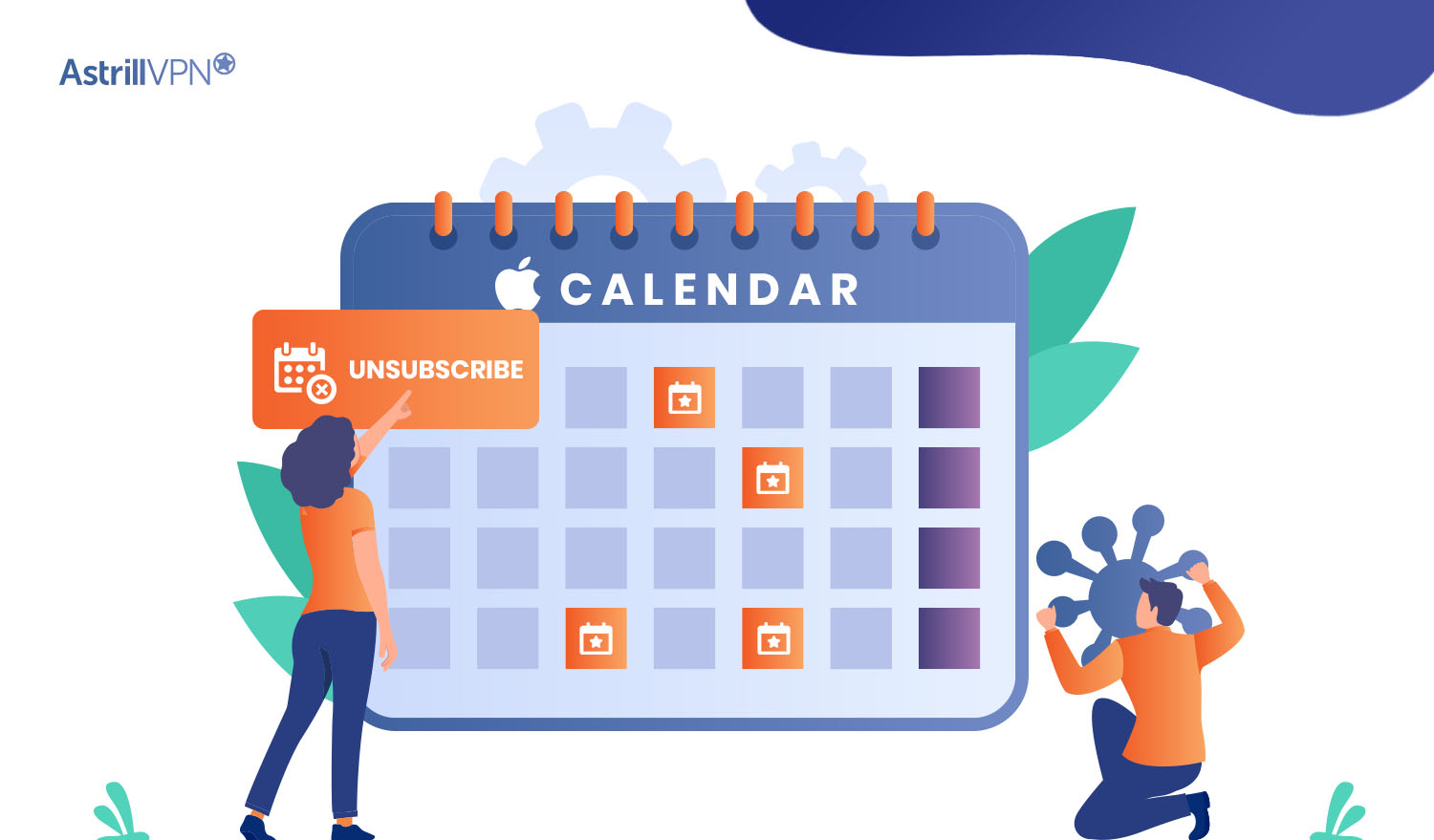The Phantom Calendar Occasion: Unraveling The IPhone Calendar Virus That Will not Delete
The Phantom Calendar Occasion: Unraveling the iPhone Calendar Virus That Will not Delete
Associated Articles: The Phantom Calendar Occasion: Unraveling the iPhone Calendar Virus That Will not Delete
Introduction
On this auspicious event, we’re delighted to delve into the intriguing matter associated to The Phantom Calendar Occasion: Unraveling the iPhone Calendar Virus That Will not Delete. Let’s weave attention-grabbing info and provide recent views to the readers.
Desk of Content material
The Phantom Calendar Occasion: Unraveling the iPhone Calendar Virus That Will not Delete

The seemingly innocuous iPhone calendar app, a instrument for managing appointments and reminders, has grow to be an unlikely battleground within the ongoing struggle in opposition to digital malware. Customers are more and more reporting a irritating and chronic drawback: undesirable calendar occasions that refuse to be deleted, typically accompanied by spam hyperlinks or cryptic messages. Whereas not a "virus" within the conventional sense of self-replicating code, this phenomenon reveals lots of the identical irritating traits, leaving customers feeling helpless and their units compromised. This text delves into the character of this persistent drawback, explores the strategies utilized by attackers, examines the explanations for its persistence, and gives sensible options to take away these undesirable entries and forestall future infestations.
Understanding the "Virus": It is Not What You Suppose
Earlier than diving into options, it is essential to make clear the terminology. The phrase "iPhone calendar virus" is a colloquialism. These undesirable calendar entries aren’t viruses within the conventional sense that infect and replicate inside the working system. As a substitute, they signify a classy type of social engineering and spam, leveraging the calendar app’s inherent functionalities for malicious functions. The attacker does not want to interrupt into your system; they merely want to take advantage of vulnerabilities within the calendar’s syncing mechanisms.
These malicious calendar entries are sometimes added by way of calendar subscriptions or invites. Attackers typically exploit vulnerabilities in third-party calendar apps or leverage public calendar feeds to inject their undesirable entries. As soon as added, these entries may be surprisingly persistent, resisting easy deletion makes an attempt. This is because of a number of components, together with:
- Calendar Subscription Mechanisms: Many malicious entries are added by subscribed calendars. Deleting the occasion itself does not take away the subscription, which continues to push updates and new undesirable occasions.
- Server-Facet Management: In some circumstances, the calendar entries are managed on a distant server. Deleting the occasion in your iPhone may not have an effect on the server-side copy, resulting in its reappearance.
- Calendar App Limitations: Apple’s calendar app, whereas sturdy, has limitations in its potential to establish and quarantine malicious entries routinely.
- Subtle Methods: Attackers are always growing new methods to bypass safety measures and make their malicious entries tougher to take away.
How the Assault Works: Exploiting Calendar Options
The method of injecting undesirable calendar entries is deceptively easy, but extremely efficient. Attackers primarily make the most of two strategies:
-
Calendar Subscriptions: Malicious actors create public calendars containing spam hyperlinks or phishing makes an attempt. These calendars are then promoted by numerous channels, together with phishing emails, malicious web sites, and even social media posts. A consumer, unknowingly or by deception, subscribes to this calendar, routinely including all its entries to their iPhone’s calendar.
-
Calendar Invites: One other methodology includes sending calendar invites containing malicious hyperlinks or info. These invites typically seem official, maybe mimicking a enterprise assembly or appointment. Accepting the invitation provides the occasion to the calendar, probably planting the malicious payload.
The hyperlinks embedded in these calendar entries typically result in phishing web sites designed to steal private info, set up malware, or unfold additional spam. The cryptic messages typically function a distraction, drawing consideration away from the true malicious intent.
Why Deleting These Entries Is So Tough
The persistence of those undesirable calendar entries stems from a mixture of things:
- Hidden Subscriptions: The subscription to the malicious calendar may be hidden or troublesome to establish inside the calendar app’s settings.
- Automated Updates: Even after deleting the occasion, the subscription continues to push new entries, successfully rendering handbook deletion futile.
- Server-Facet Persistence: The entries may be saved on a distant server, making native deletion ineffective. The server continues to push the occasions to the system.
- Lack of Clear Warnings: The calendar app does not at all times present clear warnings about probably malicious subscriptions or invites.
Efficient Options: Eradicating the Undesirable Entries
Eradicating these persistent calendar entries requires a multi-pronged strategy:
-
Determine and Unsubscribe from Malicious Calendars:
- Open the Settings app in your iPhone.
- Faucet on Calendar.
- Scroll right down to Accounts.
- Determine any unfamiliar or suspicious calendar accounts.
- Faucet on the suspicious account after which faucet Delete Account. This may take away the subscription and all related occasions.
-
Manually Delete Occasions (Briefly):
- Whereas this would possibly not completely remedy the issue if the subscription stays, manually deleting the undesirable occasions gives non permanent aid.
-
Examine for Phishing Emails and Messages: Evaluation your emails and messages for any suspicious communication which may have led to the preliminary subscription or invitation.
-
Replace Your iOS and Apps: Guarantee your iPhone’s working system and all of your apps, particularly calendar apps, are up-to-date. Software program updates typically embrace safety patches that tackle vulnerabilities exploited by attackers.
-
Use a Third-Celebration Calendar App (with Warning): Whereas not a assured answer, some third-party calendar apps provide higher management over subscriptions and should present more practical instruments for managing undesirable entries. Nevertheless, make sure you solely obtain apps from trusted sources just like the App Retailer. Totally analysis any app earlier than putting in it.
-
Manufacturing facility Reset (Final Resort): As a final resort, if all else fails, you may think about a manufacturing unit reset of your iPhone. This may erase all information in your system, together with the undesirable calendar entries. Crucially, again up your information earlier than performing a manufacturing unit reset.
-
Report the Problem: Report the malicious calendar to Apple. This helps them establish and tackle the issue, probably stopping different customers from being affected.
Prevention is Key: Defending Your iPhone Calendar
Stopping these undesirable calendar entries requires vigilance and proactive safety measures:
-
Be Cautious of Calendar Invites: Earlier than accepting any calendar invitation, rigorously look at the sender’s particulars and the occasion description. Keep away from accepting invites from unknown sources or these containing suspicious hyperlinks.
-
Scrutinize Calendar Subscriptions: Solely subscribe to calendars from trusted sources. Keep away from subscribing to calendars from unknown web sites or hyperlinks acquired by unsolicited emails or messages.
-
Allow Two-Issue Authentication: Enabling two-factor authentication in your Apple ID provides an additional layer of safety, making it tougher for attackers to entry your account.
-
Preserve Your Software program Up to date: Recurrently replace your iOS and all of your apps to profit from the most recent safety patches.
-
Educate Your self: Keep knowledgeable in regards to the newest phishing and social engineering methods. Understanding how these assaults work may help you establish and keep away from them.
The persistent "iPhone calendar virus" highlights the continuing problem of defending our digital lives from more and more refined assaults. Whereas not a real virus, the undesirable calendar entries exhibit the potential for malicious actors to take advantage of vulnerabilities in seemingly innocuous purposes. By understanding the mechanics of those assaults and implementing the preventative measures outlined above, you may considerably scale back your threat and shield your iPhone from this irritating and probably dangerous drawback. Keep in mind, vigilance and proactive safety practices are your greatest defenses within the ever-evolving panorama of digital threats.







Closure
Thus, we hope this text has supplied useful insights into The Phantom Calendar Occasion: Unraveling the iPhone Calendar Virus That Will not Delete. We thanks for taking the time to learn this text. See you in our subsequent article!